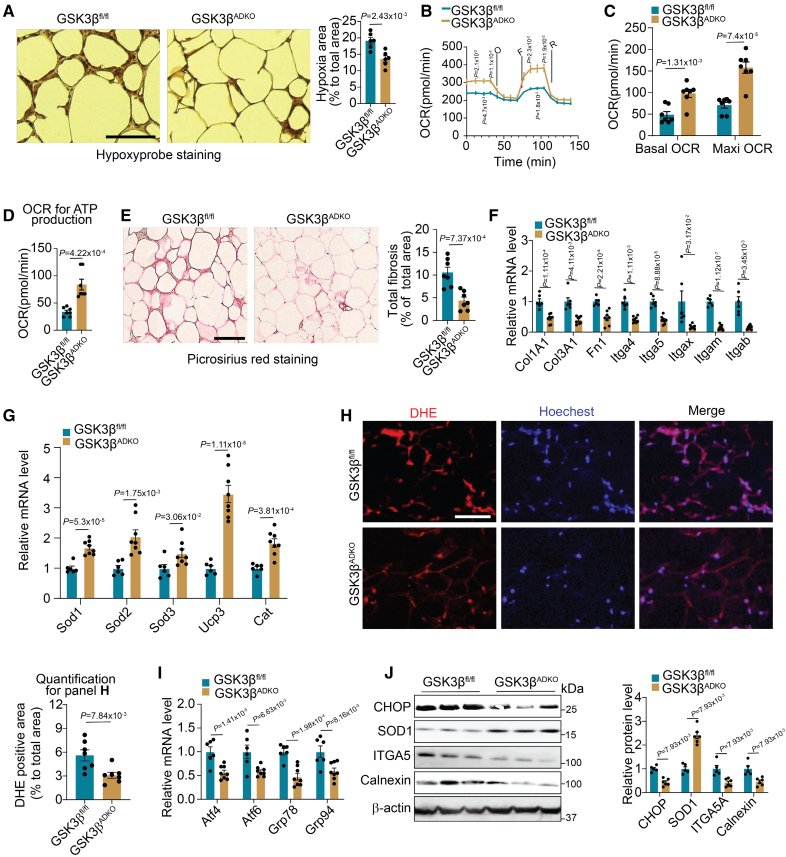Figure 5.
Adipocyte-specific GSK3β (glycogen synthase kinase-3 beta) deficiency reduces hypoxia, fibrosis, and reactive oxygen species (ROS) levels in obese adipose tissue, leading to an improved microenvironment. Male GSK3βfl/fl and GSK3βADKO mice were fed a high-fat diet to induce obesity and used for the experiments. A, Representative images of hypoxyprobe staining of epididymal white adipose tissue (eWAT) and quantification of staining from the indicated obese mice (n=6). B through D, Total oxygen consumption rates (OCRs; B), basal OCRs and OCRs for maximal (Maxi) respiratory capacity (C), and OCRs for ATP production (D) of eWAT from the indicated obese mice (n=7). E, Representative images of picrosirius red staining (detecting collagen for fibrosis analysis) and its quantification for fibrosis analysis of eWAT from the indicated obese mice (n=7). F through G, Fibrosis- (F; n=6 for GSK3βfl/fl and n=8 for GSK3βADKO) and antioxidative stress- (G; n=6) associated gene expression analysis performed using reverse transcription polymerase chain reaction (RT-PCR). H, ROS staining (dihydroethidine [DHE] dye) of eWAT sections from the indicated obese mice and quantification using ImageJ software (n=7). I, Expression analysis of ER stress-associated genes performed using RT-PCR (n=6 for GSK3βfl/fl and n=8 for GSK3βADKO). J, Western blotting analysis of the indicated proteins and quantification using ImageJ software in eWAT of indicated obese mice (n=5 for GSK3βfl/fl and n=6 for GSK3βADKO). Scale bar=100 µm. O: oligomycin; F: FCCP; R: Rot/AA. A, C through I, Two-tailed unpaired t test; B, repeated ANOVA and Bonferroni post hoc test; J, nonparametric test.

